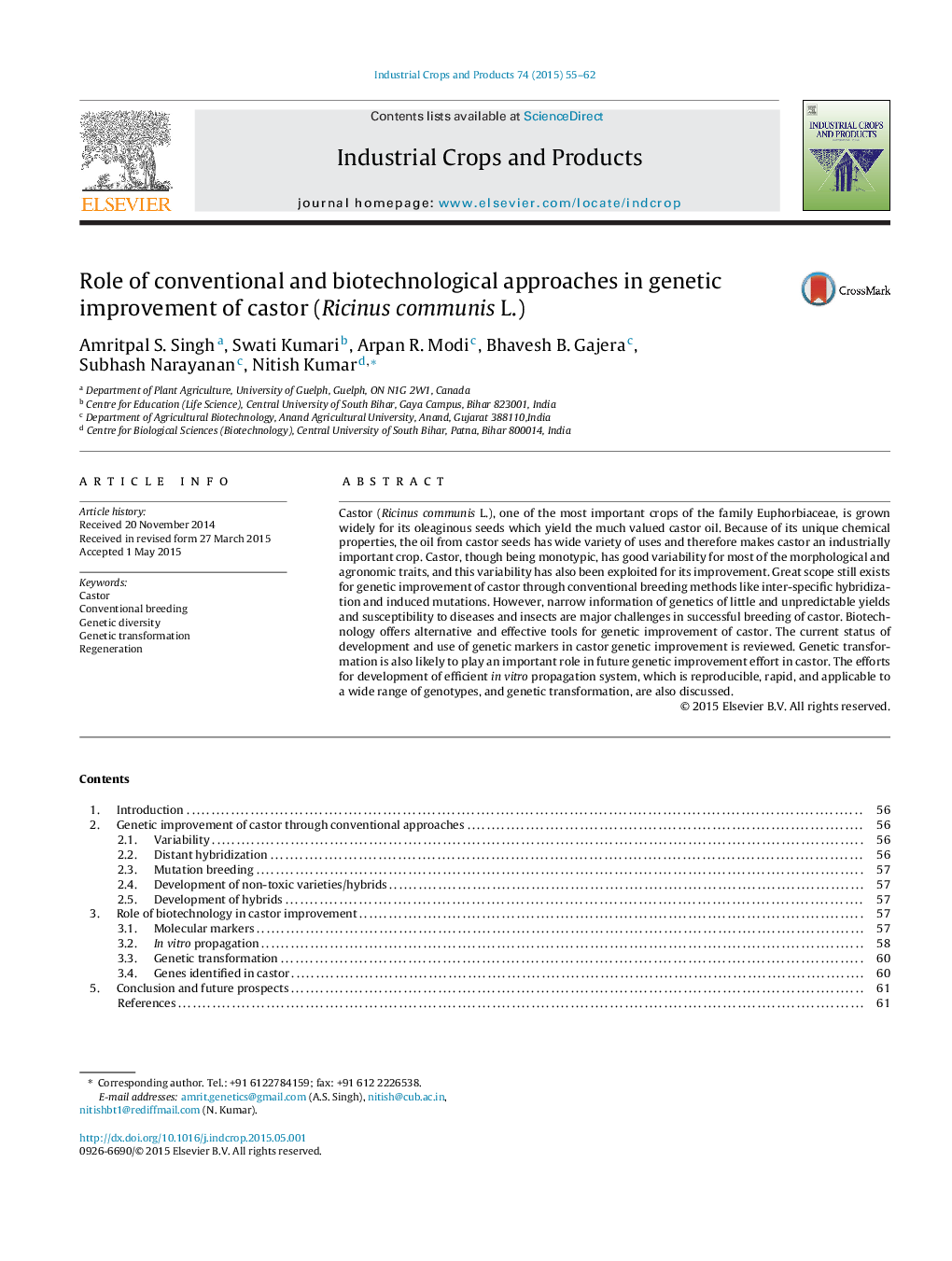| Article ID | Journal | Published Year | Pages | File Type |
|---|---|---|---|---|
| 6375824 | Industrial Crops and Products | 2015 | 8 Pages |
Abstract
Castor (Ricinus communis L.), one of the most important crops of the family Euphorbiaceae, is grown widely for its oleaginous seeds which yield the much valued castor oil. Because of its unique chemical properties, the oil from castor seeds has wide variety of uses and therefore makes castor an industrially important crop. Castor, though being monotypic, has good variability for most of the morphological and agronomic traits, and this variability has also been exploited for its improvement. Great scope still exists for genetic improvement of castor through conventional breeding methods like inter-specific hybridization and induced mutations. However, narrow information of genetics of little and unpredictable yields and susceptibility to diseases and insects are major challenges in successful breeding of castor. Biotechnology offers alternative and effective tools for genetic improvement of castor. The current status of development and use of genetic markers in castor genetic improvement is reviewed. Genetic transformation is also likely to play an important role in future genetic improvement effort in castor. The efforts for development of efficient in vitro propagation system, which is reproducible, rapid, and applicable to a wide range of genotypes, and genetic transformation, are also discussed.
Related Topics
Life Sciences
Agricultural and Biological Sciences
Agronomy and Crop Science
Authors
Amritpal S. Singh, Swati Kumari, Arpan R. Modi, Bhavesh B. Gajera, Subhash Narayanan, Nitish Kumar,
